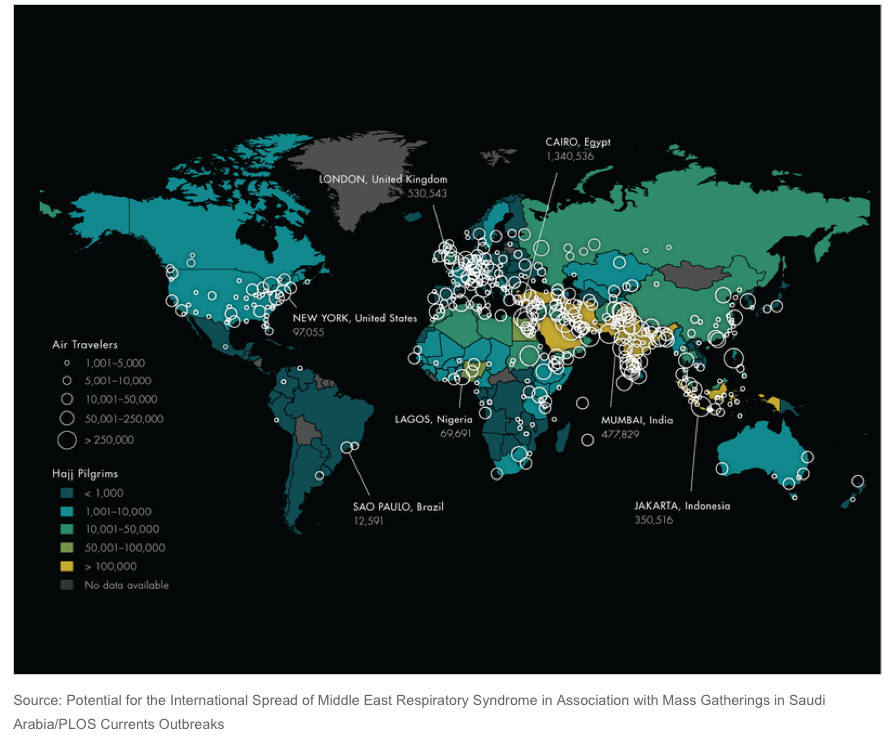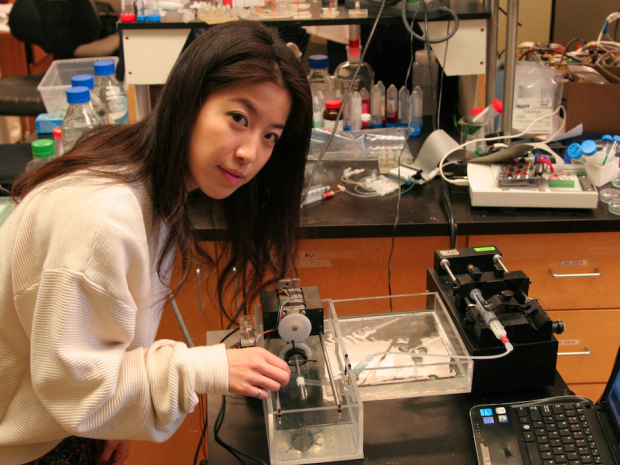BioDiaspora predicts Hajj and Umrah as two key possible spread points for MERS coronavirus
 BioDiaspora, a start-up company based on the research of company founder, Dr. Kamran Khan of St. Michael’s Hospital, has identified two mass gatherings in the Islamic world as key possible spread points for the life-threatening MERS coronavirus, which emerged in the Middle East in early 2012.
BioDiaspora, a start-up company based on the research of company founder, Dr. Kamran Khan of St. Michael’s Hospital, has identified two mass gatherings in the Islamic world as key possible spread points for the life-threatening MERS coronavirus, which emerged in the Middle East in early 2012.
BioDiaspora’s disease-tracking platform, which correlates uses global air traffic patterns to predict the international spread of infectious disease (as described in the original media release from St. Michael’s Hospital):
The first is umrah, a pilgrimage that can be performed at any time of year but is considered particularly auspicious during the month of Ramadan, which this year began on July 9 and ends on Aug. 7. The second is the hajj, a five-day pilgrimage required of all physically and financially able Muslims at least once in their life. It takes place Oct. 13 to 18 this year and is expected to draw more than 3 million people.

It also identified the Mumbai-India corridor as particularly vulnerable to MERS based on the predicted exit traffic of travelers leaving the hajj and returning to their home countries following the mass religious event.
Khan’s research findings, published in PLOS Currents: Outbreaks, have attracted media coverage from the Times of India, CanIndia, Toronto Star‘s Foreign Desk blog (Jennifer Yang), Science Daily.com, DowntoEarth.org and Homeland Security News Wire.









